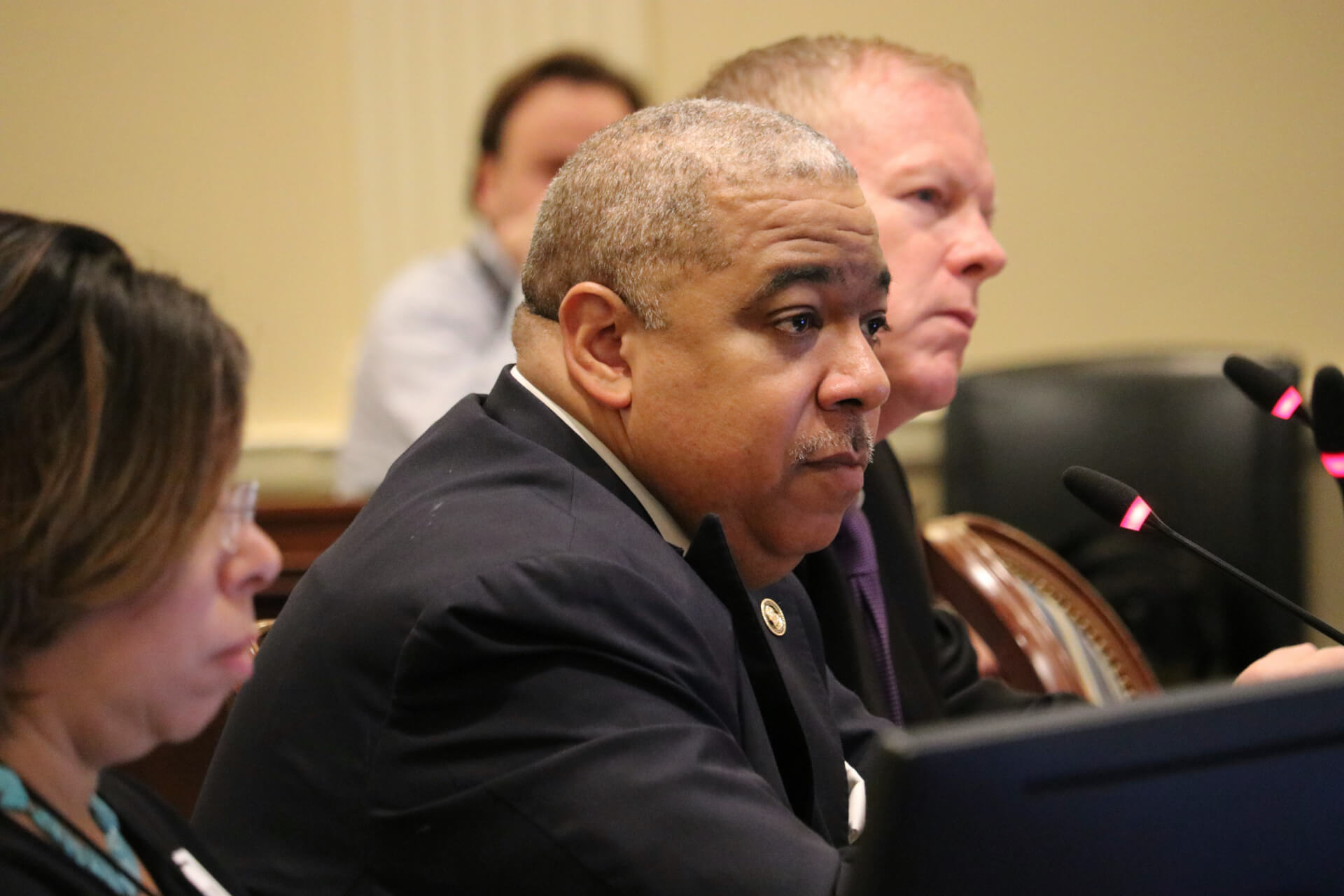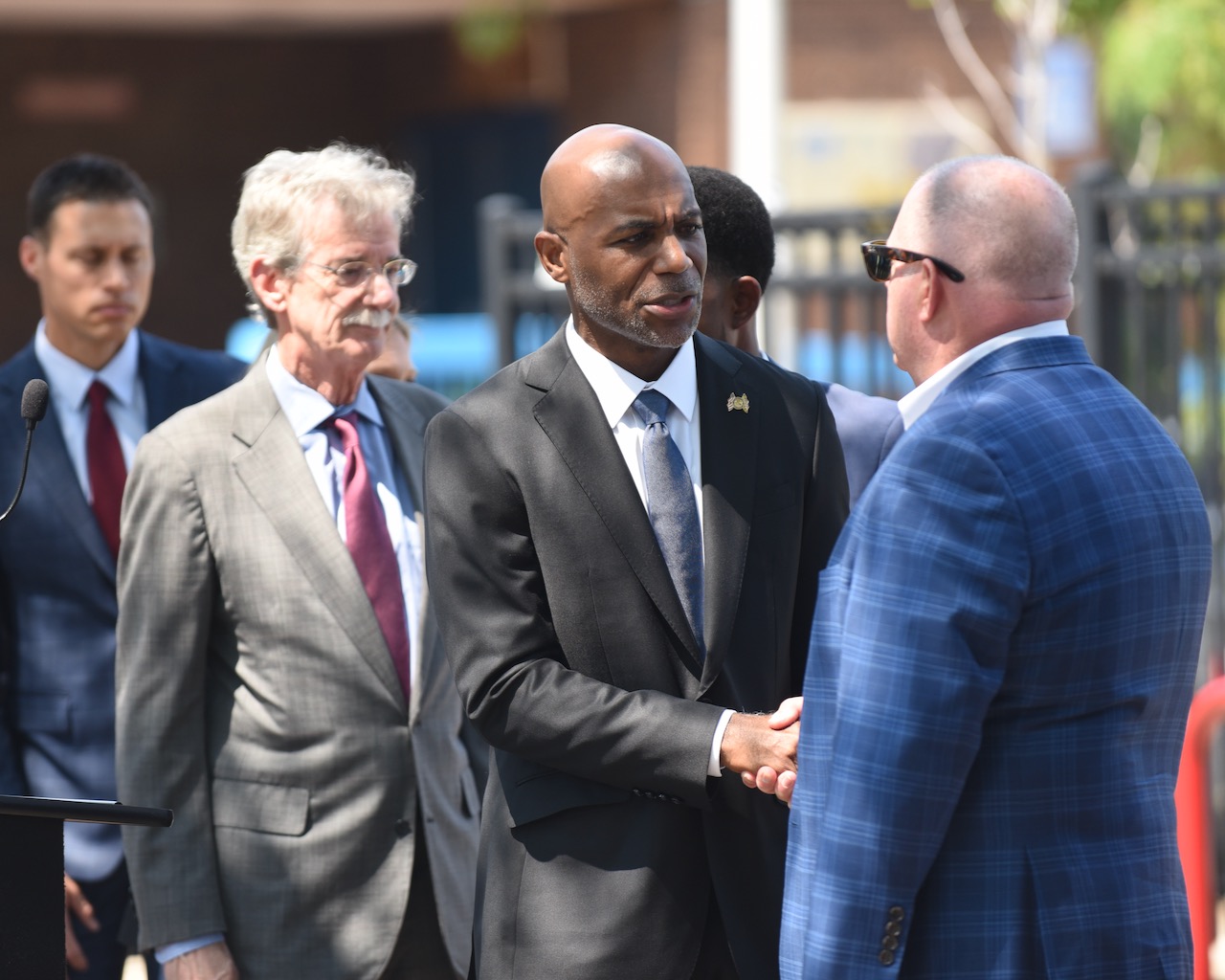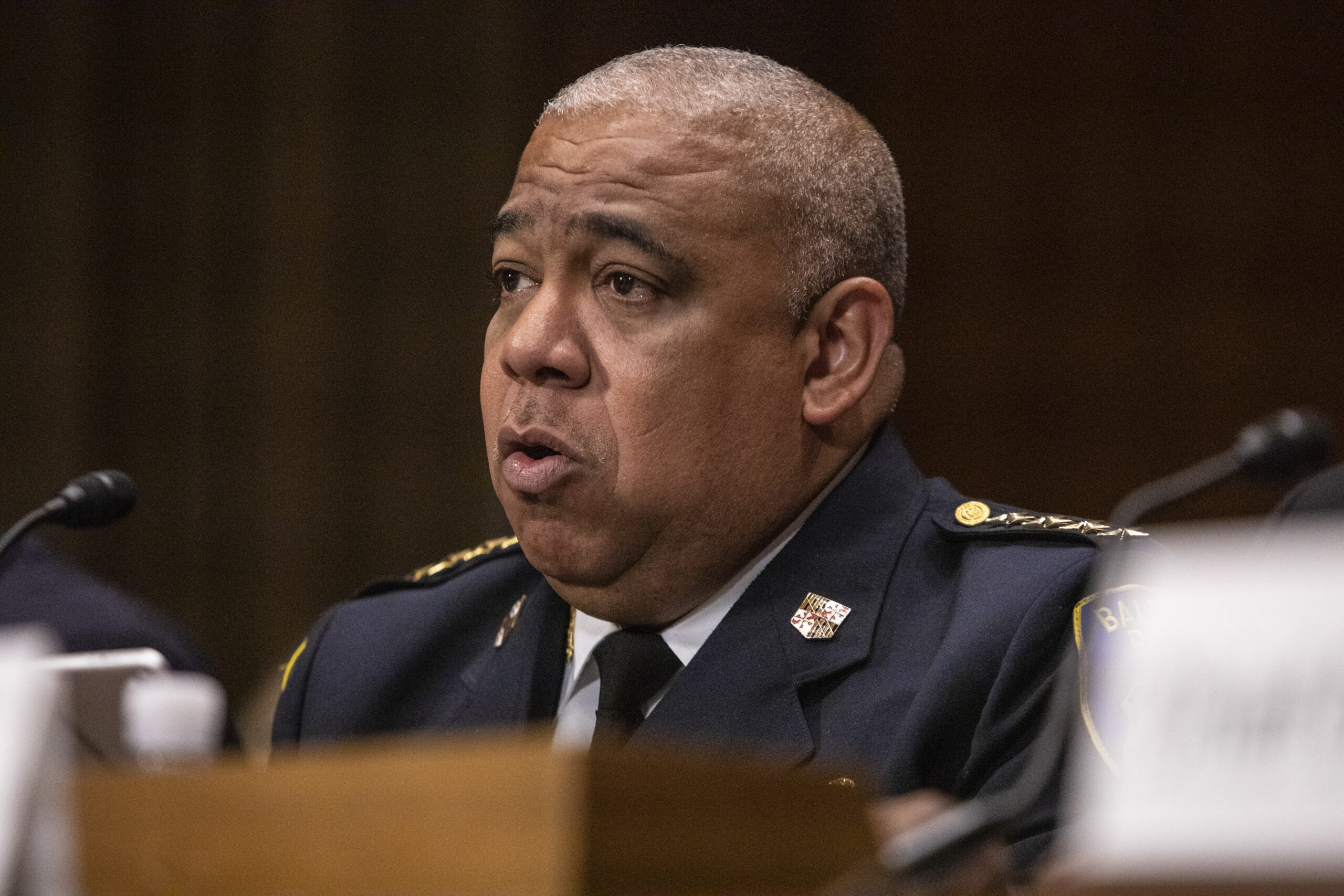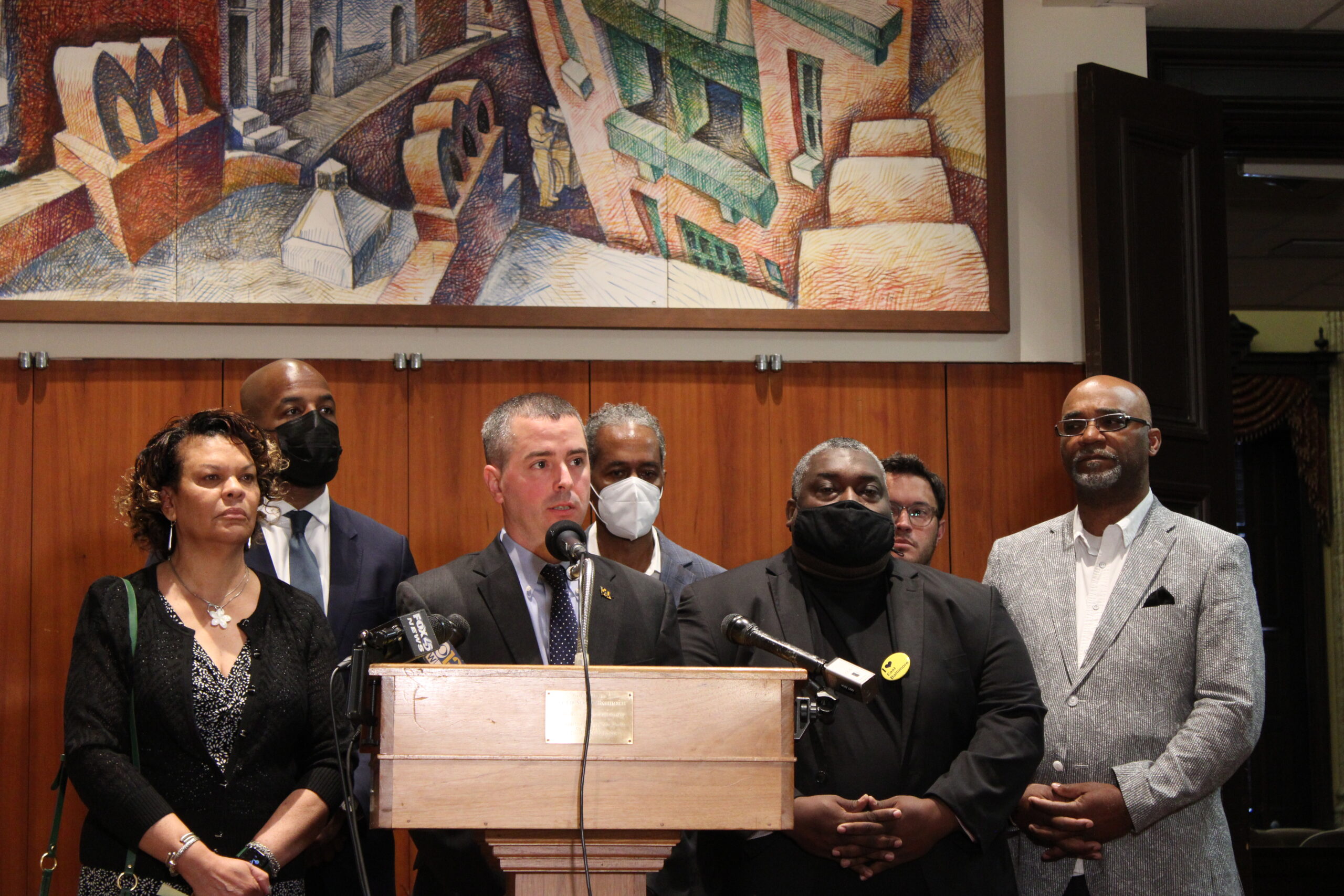Attorney for Police Unions Slams Baltimore Commissioner Over Law Enforcement Officers’ Bill of Rights

An attorney for over 50 Maryland police unions slammed Baltimore City Police Commissioner Michael Harrison Monday for seeking too much power in police officer disciplinary measures.
As a state panel mulls proposed changes to the Law Enforcement Officers’ Bill of Rights, attorney Michael Davey asserted that the law isn’t the problem — the way the Baltimore Police Department interprets it is.
In June, Kristen Blumer, Baltimore City’s chief solicitor, penned a letter to the Commission to Restore Trust in Policing, supporting a proposal that would alter the state’s controversial law in a way that would give more power to Harrison.
“When I read the commissioner’s letter I tried to think of what would be the rationale for wanting to make these dramatic changes, and there’s really only two that I can come up with,” Davey said. “One: that Commissioner Harrison is not familiar with the Law Enforcement Officers’ Bill of Rights — he doesn’t understand it or he just doesn’t want to deal with it because he didn’t have to deal with it his prior police department. The second reason is it’s just mismanagement by their own department.”
The Commission to Restore Trust in Policing has spent more than two years focusing on police corruption and accountability in Baltimore City. A former state police officer who represents 55 police unions across the state, Davey offered trenchant testimony about Baltimore Police Department management.
“I’ve been testifying in Annapolis probably for the last five or six years,” he said. “At no time has any police chief come to Annapolis and said ‘We need these changes that are being recommended by Commissioner Harrison.’”
“It’s never happened until now.”
Davey called the city’s recommendations “dramatic and drastic.”
“I think that probably the first thing that needs to be understood is the Law Enforcement Officers’ Bill of Rights is a statewide bill,” he told the workgroup Monday. “It doesn’t just affect Baltimore City.”
Maryland has 148 law enforcement agencies representing more than 16,000 officers. Davey said that, in the letter submitted to the workgroup, Harrison was “trying to speak” for every other police chief in the state.
“He’s making recommendations that, if amended, would affect every police department under the LEOBR in the state of Maryland,” he said.
The blame game
The letter from the city solicitor suggested that Maryland criminal code be expanded to include probations before judgment for police officers and convictions for misdemeanor charges and felonies.
Under the current iteration of the Law Enforcement Officers’ Bill of Rights, officers charged with misdemeanor crimes that result in disciplinary measures or dismissals are entitled to a hearing to discuss the allegations before facing repercussions. Those charged with felony offenses are denied that privilege.
The city also suggested that chiefs be granted the ability to fire officers “highly likely” to face or who are actively facing charges.
“That really has a major effect on someone’s ability to have due process,” Davey said.
Davey did concede that, should the Law Enforcement Officers’ Bill of Rights be repealed, officers would still have access to due process protections under the 14th Amendment, but those protections could vary across all 148 departments.
Further, Blumer expressed interest in expanding the ability to suspend officers without pay. As it stands, police chiefs only have the ability to withhold pay from officers charged for felony crimes. This amendment would extend that right to officers facing specific misdemeanor charges.
Ultimately, Davey told workgroup members that Harrison’s recommendations are too broad.
The city also suggested that police chiefs be given the ability to overturn exonerations should they believe that the hearing board “did not follow the evidence.”
Deemed another due process violation, Davey implied that this would land too much power into police chiefs’ hands because they are already responsible for selecting and assigning board members.
“There is no court that I ever heard of — criminal court, civil court — where that can happen, where it can just be changed just because the commissioner didn’t like the outcome,” he said. “If they found him not guilty, the commissioner surely cannot have the ability to overturn any of those decisions.”
Additionally, Blumer wrote advocating to limit judicial review of law enforcement agency hearings, stating that officers found guilty shouldn’t have the opportunity to be reinstated on the basis of small technicalities.
Davey explained that winning an appeal “on substantial evidence is extremely difficult,” and that appeals, in general, are rare.
“If we do 15 trial boards a year, we may appeal one. We’re not talking about a lot,” he said. ”But what the commissioner is talking about is the ones he loses. And again, because he can’t manage it correctly, again, it comes back to ‘Let’s blame the Law Enforcement Officers’ Bill of Rights.”
Realistic reform?
Davey acknowledged that the Law Enforcement Officers’ Bill of Rights needs to be amended, citing the fact that, currently, there’s no time limit on investigations after an officer has been charged.
“In Baltimore City right now, I have 75 — if not more — open trial boards. Some of them are for officers who were charged two to two and a half years ago that are simply sitting out there with no requirement to have them done,” he said. “If you look at the Baltimore City consent decree, that is basically one of the issues in the consent decree.”
According to the city’s consent decree with the U.S. Department of Justice on policing issues, disciplinary hearings are to be scheduled within 30 days of being charged, and the department is to “use its best efforts” to ensure that hearings occur within four months.
During the Monday meeting, the commission mulled over a series of proposed changes to the Law Enforcement Officers’ Bill of Rights based on testimony from the Baltimore City Police Chief, the Fraternal Order of Police, the Baltimore City State’s Attorney’s Office and an analysis of best practices from other counties.
These suggested amendments include:
- The implementation of a police accountability board to ensure consistency in charging
- Mandated trained civilian involvement on hearing boards
- Expanding officers’ waived right to a hearing to include felonies and misdemeanor assault and theft charges
- Requiring hearing boards to be recorded and made publicly available
- Mandating that officers who serve on hearing boards be trained to do so by the Maryland Police Training and Standards Commission
- Barring the expungement of unsubstantiated charges from an officers’ record, changing the expungement period from three to five years and banning the expungement of formal complaints regarding the use of force, discourtesy, sexual or racial harassment or violation of criminal statute
- Granting investigating officers and civilians the ability to subpoena evidence
- Authorizing an agency’s civilian employees to conduct investigations and interrogations against officers
- Reducing the amount of time an officer has to obtain counsel before being interrogated from five days to three.
The workgroup is hoping to get its final recommendations out by the end of October. Another state panel, convened this summer by leaders in the House of Delegates, is also examining police reform issues.




 Creative Commons Attribution
Creative Commons Attribution